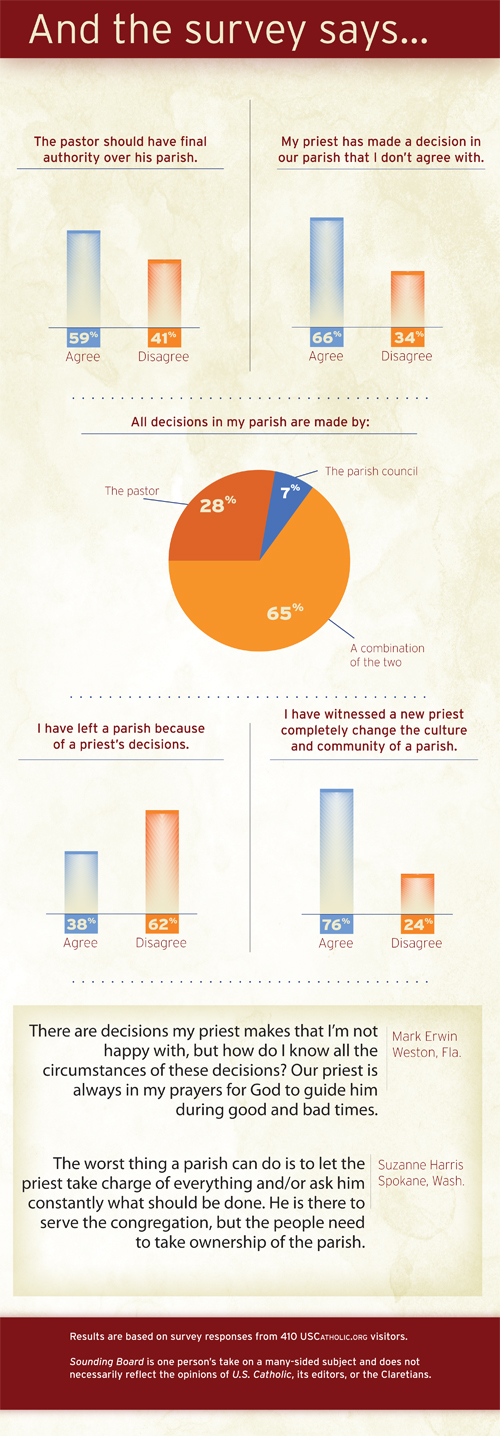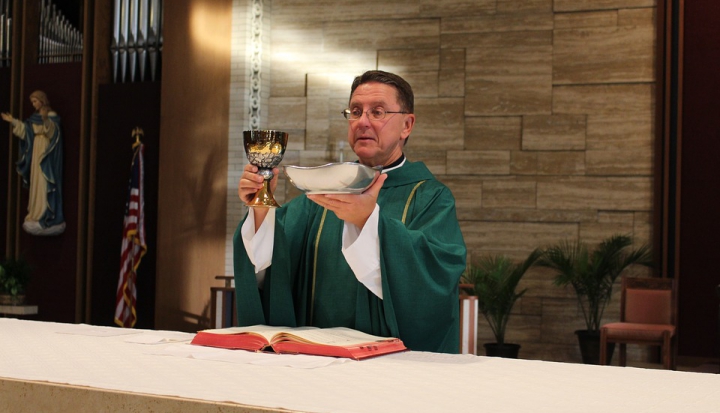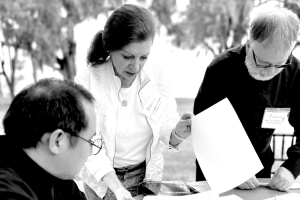When I was growing up, my family belonged to a vibrant, close-knit parish community. It was a parish with a lot of history—my dad grew up there, and many other families had also been members for decades. My siblings and I were baptized there, made our first communions there, and dutifully attended Sunday school there week after week.
The parish didn’t just fill a spiritual need for my family. It filled a social need, too. My parents became good friends with other young families, and it wasn’t uncommon for us to stay long after the closing hymn to socialize. That is, until, our parish was assigned a new priest.
The priest began making large-scale changes—like eliminating one of the main worship spaces—without consulting the parishioners who cared so deeply about the parish. Finally, after one too many changes, my family and others began to leave, and the close-knit parish community was no more.
Of the 410 U.S. Catholic readers who participated in our survey, 76 percent say they have had a similar experience. A new priest comes into their parish and unilaterally makes decisions that change the culture and community. Everyone has their own expectations for their parish. It can get tense when a priest’s expectations don’t align with those of the lay leadership and parishioners. That’s certainly what happened in my family’s church. When these misaligned expectations lead to concrete actions, that’s when the parish community can change, for better or for worse.
Clement Ward of Stillwater, Oklahoma says, “At 70 plus, I’ve seen a lot of new priests. A huge pet peeve of mine is when a newly assigned priest makes immediate, sweeping changes without giving any consideration to the tradition, practices, culture, and community of the long-standing parish.”
Readers share Ward’s complaint. While 59 percent of readers think a pastor should have final authority over his parish, 66 percent say their priest has made a decision they didn’t agree with. “Our priest is not the type to consult—only dictate,” says Chuck Simmons of Waynesville, North Carolina. “If he ever did consult anyone and failed to receive the answer that he wanted, he would just ignore the input anyway.”
Sometimes these decisions are logistical, like changing Mass times or creating new committees. These little changes can affect the overall morale of the parish. “We had a Cuban pastor, and our celebrations and decorations were very Spanish,” says Jan Shiplett of Milton, Florida. “Then a pastor from New England followed. He took down the decorations, and the celebrations became very muted. I miss the celebrations.”
Other times, a priest’s liturgical decisions are unsettling. “We had a tradition in our parish for the prayer after communion to come immediately after the communion procession, and then a period of silence,” says Andrew Boyd from Rome. “This is an option in the Roman Missal. It didn’t matter that it was an allowed practice and was more liturgically sensible. Our new priest was unfamiliar with it, so he changed it.” Likewise Penelope Tafoya of Sacramento, California did not like when her priest stopped using the inclusive language during Mass her parish had adopted many years before.
Responses varied as to just what kinds of things a priest should and shouldn’t be able to do in a parish. Sheila Kelly of White Bear Lake, Minnesota believes a priest should have the power to “hire and fire staff, set budgets, perform the sacraments, and oversee the spiritual life of the people.” But he should not be able to “rearrange the worship space to suit his own fancy,” says Thomas Devereaux of Santa Rosa, California, or “expel someone because of racial, cultural, or sexual orientation,” says Barb Puscas of Aurora, Illinois.
The changes a new priest brings to a parish can be positive and embraced by his new community. “We had a pastor who started faith formation groups and got people enthusiastic. We had been a spirituality dead parish for 10 years,” says Jo of Sherwood, Arkansas. Germaine Wieman of Houston had a similar experience: “Our parish has grown in size and attendance at liturgy and parish activities. I think that must be due to the pastor and his effect on the people of the parish.”
Many readers expressed frustration over their priest’s unwillingness to communicate and consult with the parish community on changes he’s instituting. “The power to make decisions needs to be shared between the priest and the parishioners,” says Father Joe Tomei of Santiago, Chile. David Tilly of Bryson City, North Carolina agrees: “I believe a Catholic parish community should be one that exists in a collaborative sense. It’s our church, not his.”
Readers have experienced a variety of leadership styles from their parish priest. Andrea Gagliani of Western Springs, Illinois says her parish is “blessed with a pastor who consults with parishioners on the parish council and finance committee before making decisions.” He also “consulted with the entire parish in a series of open listening sessions in order to revise the vision and mission statements of our parish. Everyone was invited to participate.”
While a priest’s decisions matter, creating a lively parish community isn’t his responsibility alone. Readers prefer a back-and-forth between pastor and parishioners like that in Gagliani’s parish. “Without a priest, the church community is incomplete,” says Deli Lanoux of Port Aransas, Texas. “But without the people, the priest is nothing.”
Readers also emphasize the importance of acknowledging, as Kay Haberlach of Milwaukie, Oregon puts it, that “Mass is Mass whether I like the priest or not.” Steven Bettlach of St. Louis echoes that sentiment and says, “A pastor can’t make every person in the parish happy. He needs to walk a fine line between being popular and being a holy man.”
The priest in my childhood parish walked that line himself. If we had stayed and tried to work with him, could things have been different? Perhaps. If he hadn’t come to the parish, could the community have crumbled for other reasons? Maybe. But that priest definitely demonstrated the need for a healthy balance of power between priest and parishioners to maintain a vibrant parish community.
Anne van Tilburg of Melbourne, Australia asks an important question we should perhaps all ask when it comes to a priest’s influence on a parish: “Do I go to church because of the popularity of the priest?” she asks. “No. I go to church because I love God.”














Add comment